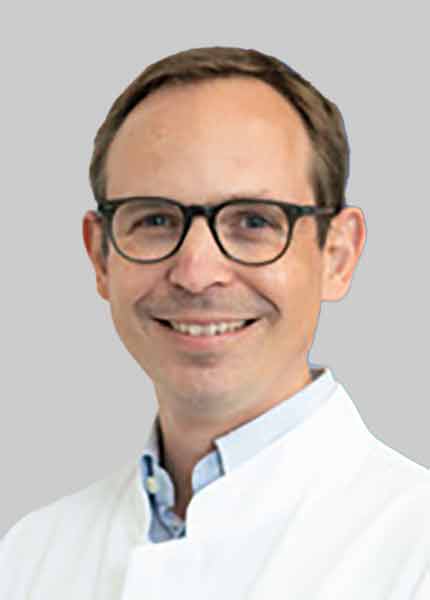
Full Professor
Department of Neurology
University Hospital of Freidrich Alexander University
Erlangen-Nürnberg | Germany
Veit Rothhammer, MD, is a Full Professor of Neuroimmunology at the Department of Neurology at the University Hospital of Friedrich Alexander University Erlangen-Nuernberg in Germany.
Dr. Rothhammer received an MD degree from the University of Wuerzburg in Germany and was board certified in Neurology at the Technical University in Munich in 2013. Being a member of the research groups of Prof. Dr. Thomas Korn and Prof. Dr. Bernhard Hemmer, his research focused on the migration of T cells in autoimmune and pathogen mediated diseases of the CNS. He moved to Francisco Quintana’s lab at Harvard Medical School in 2014, where he studied the role of astrocytes in the context of CNS inflammation. In 2018, he moved back to Germany to become Attending Neurologist at the Department of Neurology at the Technical University Munich (Prof. Dr. B. Hemmer), where he established his independent research group supported by a Heisenberg fellowship (German research foundation, DFG) to study glial co-inhibitory signaling. He was awarded an ERC Starting grant in 2020 to investigate reparative glial mediators in tissue regeneration in MS and preclinical animal models. In 2020, he accepted an appointment as Full Professor of Neuroimmunology (W3) at the Department of Neurology (Chair Prof. Dr. Dr. Schwab) at Friedrich Alexander University Erlangen.His main research focus is the role of glial cells such as astrocytes and microglia in acute and chronic autoimmune inflammatory tissue damage with the goal of developing novel therapeutic strategies for hence untreatable stages of MS and potentially other neurodegenerative diseases.
Dr. Rothhammer is the recipient of the Helmut-Bauer Young Investigator Award, the Sobek Young Investigator Award, the Oppenheim Award as well as the Karl-Heinz-Hoffmann Award.

University of Brisbane Brisbane | Australia
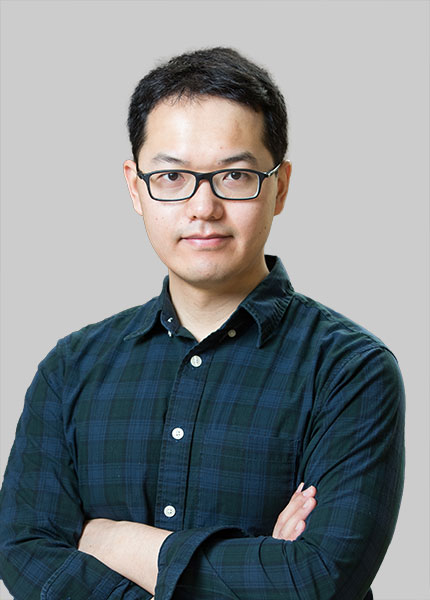
Hotchkiss Brain Institute
University of Calgary
Calgary | Canada
Yifei Jeff Dong, PhD, is currently a postdoctoral fellow at the Department of Clinical Neuroscience at the Hotchkiss Brain Institute and the University of Calgary in Canada.
Dr. Dong completed a PhD degree in 2018 with Dr. Pauline Johnson at the University of British Columbia in Canada. His thesis focused on how the extracellular matrix molecule hyaluronan, and its receptor CD44 regulate lung alveolar macrophage functions in homeostasis and during inflammation. He then joined the laboratory of Dr. V. Wee Yong as a postdoctoral fellow to study the neuroimmunology of MS. His recent work identified oxidized phosphatidylcholine, a biomarker of oxidative stress in MS lesions, are potent mediators of neurodegeneration in the CNS that require microglia for removal. His current research focuses on how ageing perturbs the microglia transcriptomes and functions to become less protective and even injurious, and how this may contribute to the acceleration of neurodegeneration and MS disease progression in ageing individuals.
Dr. Dong is grateful for postdoctoral fellowship funding support from the Canadian Institutes of Health Research, the MS Society of Canada, the Hotchkiss Brain Institute, and the Alberta MS Network.
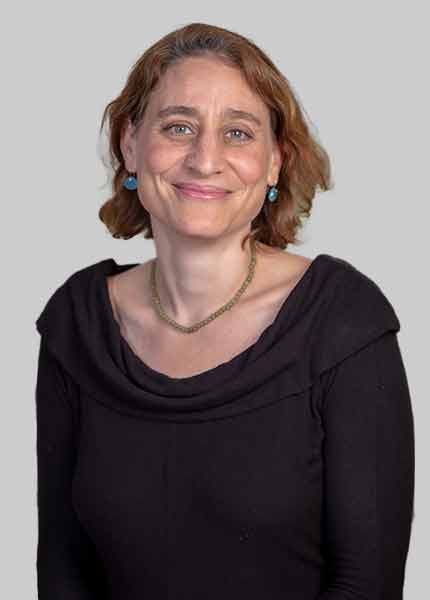
Goren-Khazzam Lecturer in Brain Sciences
Edmond and Lily Safra Center for Brain Sciences (ELSC)
Hebrew University of Jerusalem
Jerusalem | Israel
Dr. Habib is a computational neuroscientist with broad interdisciplinary training and extensive experience in computational biology, genomics and genome engineering.
She joined the center for brain sciences at the Hebrew University of Jerusalem, as an assistant professor (senior lecturer) in August 2018. The Habib lab focuses on elucidating cellular and molecular mechanisms underlying ageing-related brain pathologies, mainly Alzheimer’s Disease, and how the crosstalk with the aging body and the immune system contributes to disease progression.
They are applying cutting edge technologies and computational models to chart molecular alterations in aging and Alzheimer’s brains, and developing new technologies to interrogate the aging brain.
Dr. Habib obtained her PhD in computational biology from the Hebrew University of Jerusalem, working with Prof. Nir Friedman and Prof. Hanah Margalit. Naomi then undertook postdoctoral fellowship, at the Broad Institute of MIT/Harvard working, with Prof. Feng Zhang and Prof. Aviv Regev, where she led the development of the single nucleus RNA-sequencing technologies and took part in a team effort to develop the transformative CRISPR/Cas9 genome engineering technologies.
Dr. Habib wan several prestigious awards and grants during her career, including an HHMI fellow for the Howard Hay Whitney fellowship, an Alon fellowship and an ERC starting grant.
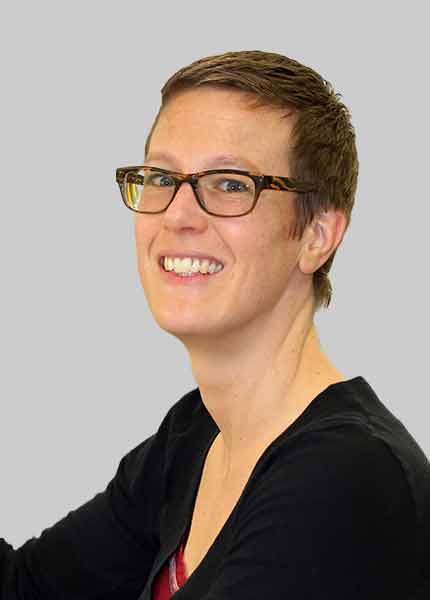
Dept. of Clinical Neurosciences
University of Calgary – Cumming School of Medicine
Dr. Kuipers received her MSc in Biopharmaceutical Sciences and her PhD in Immunology (cum laude) at Leiden University in the Netherlands. After this, she moved to Stanford University to do neuroimmunology research as a postdoctoral scholar in the lab of Dr. Lawrence Steinman and continued to study extracellular matrix immunology in the lab of Dr. Paul Bollyky as a research scientist. In April 2018 she joined the Departments of Clinical Neurosciences and Cell Biology & Anatomy of the University of Calgary as an Assistant Professor of Neuroimmunology. She is a member of both the Hotchkiss Brain Institute and the Snyder Institute for Chronic Diseases.
Dr. Kuipers’ research centers on neuroinflammatory diseases such as multiple sclerosis (MS) and tries to understand the interaction between immune cells entering the central nervous system (CNS) and its resident cells. Her main focus is on how astrocytes regulate inflammatory responses. She has shown before that these cells, which are highly abundant in the brain, can release factors that help immune cells infiltrate into CNS tissue. She currently investigates how astrocytes interact with these immune cells and shape their responses, and the microenvironmental factors involved in these interactions, using molecular and cell biology approaches, as well as in vivo models of MS.
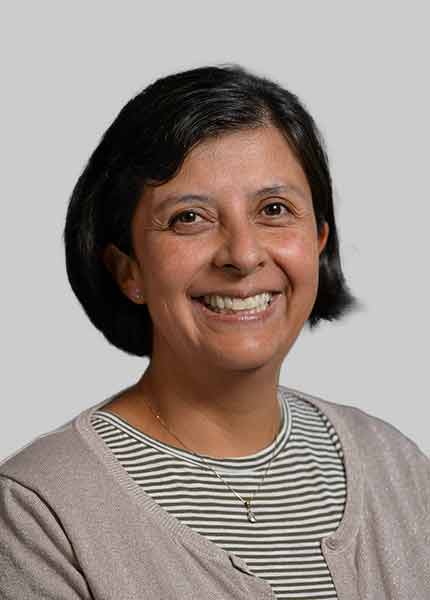
Scientist, UHN-Krembil Research Institute
Assistant Professor, Department of Immunology, University of Toronto
Dr. Rojas received an MD degree from Pontificia Universidad Javeriana in Colombia by 2001. Then she pursued her PhD in Colombia, South America in 2007 studying the mucosal immune response against Rotavirus in humans. In 2010 she started a post-doctoral fellowship followed by a Research associate position at Dr. Jennifer Gommerman Lab, Department of Immunology- University of Toronto studying the role of Intestinal B cells and Plasma cells in Multiple Sclerosis. During that time, Dr. Rojas was able to show that a small subset of IgA Plasma Cells (IgA-PC) that were initially primed in the gut by the microbiota could migrate to the brain to regulate neuroinflammation in Multiple sclerosis (MS) and Experimental Acute Encephalomyelitis (EAE). Once intestinal IgA PC reach the inflamed brain, they produce IL10 to dampen the disease.
By the end of 2020, Dr. Rojas joined UHN-Krembil Research Institute as a Scientist. As an early career investigator, her lab is interested in understanding the role of mucosal immune cells as a key intermediate of the gut-brain axis during neuroinflammation and aging-related neurological disorders. Central to this question is understanding how changes in the adaptive immune response at the brain-meningeal border can modulate neurodegeneration. More specifically, She is interested at dissecting the possible role of intestinal-derived immune cells as key players in the gut-brain axis and how those cells can directly (by migration) or indirectly (by cytokines, chemokines) impact pathogenic processes in the brain during neurodegenerative disorders such as Alzheimer’s Disease and Parkinson’s Disease with the goal of developing novel therapeutic strategies.
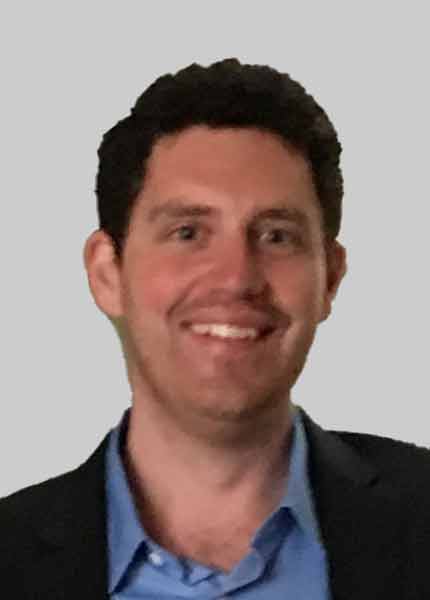
Brigham and Women’s Hospital
Harvard Medical University
Boston (MA) | USA
My background is in immunology and neuroscience, with an emphasis on neuroimmune mechanisms controlling astrocytes and other glial cells in multiple sclerosis and CNS inflammation.
As a post-doc, I made several contributions to our understanding of how astrocytes are influenced by, and exert influence over, inflammation of the central nervous system. In particular, I focused on: (1) the development of a new method, RABID-seq, used to analyze astrocyte networks with single-cell and genome-wide precision (Clark*, Gutiérrez-Vázquez*, Wheeler* et al., Science 2021); (2) a gut-immune-brain axis controlling astrocyte-induced apoptosis of pro-inflammatory effector T cells (Sanmarco*, Wheeler*, et al., Nature 2021); (3)astrocyte heterogeneity in multiple sclerosis and its animal model, EAE, which is regulated by pathogenic T cells and epigenetic modifications (Wheeler et al., Nature 2020); and (4) pathways exploited by environmental pollutants that exacerbate pro-inflammatory astrocyte responses in EAE and MS (Wheeler et al., Cell 2019). I also made several other contributions to our understanding of neuroimmune cross-talk in CNS inflammation focused on multiple sclerosis/EAE, glioblastoma, Zika virus infection, and epilepsy.
My long-term goal is to apply our understanding of CNS immune responses in autoimmunity to other disorders, including neuropsychiatric and neurodegenerative diseases, with the objective of identifying therapeutically tractable molecular targets.
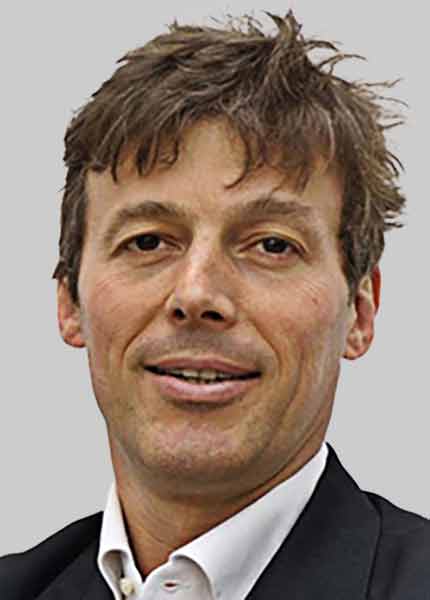
Roberto Furlan graduated in medicine at the University of Milano in 1991.
After the MD degree, in 1992 he was visiting scientist in the Department of Neurology from the University of Chicago, working on HTLV-I.
The following year (1993) he completed a research project on HTLV-I in the Clinical Laboratories of the Sao Rafael Hospital in Salvador-Bahia, in Brazil.
From 1994 to 1995 he worked as a post-doctoral fellow in the Department of Molecular Genetics and Biochemistry, University of Pittsburgh, Pittsburgh, USA on HSV-1-mediated gene therapy of the central nervous system.
Using HSV-1-derived vectors he performed gene therapy studies in multiple sclerosis models and in 2001 he obtained his PhD at the Open University of London working in the Neuroimmunology Unit of the San Raffaele Scientific Institute, Milan, Italy.
Since 2001 tenure-track research assistant Senior scientist in the Neuroimmunology Unit of the San Raffaele Scientific Institute, he completed in 2007 the residency in neurology.
Since 2004, non-tenured professor at Vita e Salute San Raffaele University, Milan.
Since 2009, Group leader and then Head of Unit of the Clinical Neuroimmunology Unit, Institute of Experimental Neurology, Division of Neuroscience, San Raffaele Scientific Institute, Milan.
Since 2011 Secretary treasurer of the International Society of NeuroImmunology.
Since 2013 Academic Editor for Plos One.
2017-2021 Deputy Director of the Institute of Experimental Neurology – INSpe, San Raffaele Scientific Institute, Milan.
Since 2019 President of the Italian Neuroimmunology Association – AINI
Since 2022 Director of the Institute of Experimental Neurology – INSpe, San Raffaele Scientific Institute, Milan.
He has published over 200 papers on peer reviewed international journals.
Current H-index = 71, 46 in the last five years.
1. Furlan R, Martino G, Galbiati F, Poliani PL, Smiroldo S, Bergami A, Desina G, Comi G, Flavell R, Su MS, Adorini L. Caspase-1 regulates the inflammatory process leading to autoimmune demyelination. J. Immunol. 1999 163:2403-2409
2. Del Maschio A, De Luigi A, Martin-Padura I, Brockhaus M, Bartfai T, Fruscella P, Adorini L, Martino G, Furlan R, De Simoni MG, Dejana E. Leukocyte recruitment in the cerebrospinal fluid of mice with experimental meningitis is inhibited by an antibody to Juncional Adhesion Molecule (JAM). J. Ex. Med. 1999;190:1351-1356
3. Furlan R, Brambilla E, Ruffini F, Poliani PL, Bergami A, Marconi PC, Franciotta DM, Penna G, Comi G, Adorini L, Martino G. Intrathecal delivery of IFNγ protects C57BL/6 mice from chronic-progressive experimental autoimmune encephalomyelitis by increasing apoptosis of CNS-infiltrating lymphocytes. J. Immunol. 2001; 167:1821-1829
4. Martino G, Furlan R, Comi G, Adorini L. The ependymal route to access the central nervous system: an emerging immuno-gene therapy approach to multiple sclerosis. Trends Immunol. 2001; 22:483-490
5. Furlan R, Brambilla E, Sanvito F, Roccatagliata L, Olivieri S, Bergami A, Pluchino S, Uccelli A, Comi G, Martino G. Vaccination with amyloid-bea peptide induces autoimmune encephalomyelitis in C57BL/6 mice. Brain. 2003;126:285-291
6. Pluchino S, Quattrini A, Brambilla E, Gritti A, Salani G, Dina G, Galli R, Bergami A, Furlan R, Delcarro U, Amadio S, Comi G, Vescovi Al, Martino G. Intravenous and intracerebroventricular injection of adult neurospheres induces clinical recovery in a chronic model of multiple sclerosis. Nature 2003; 422:688-694
7. Furlan R. Bargami A, Cantarella D, Brambilla E, Taniguchi M, Dellabona P, Casorati G, Martino G. Activation of invariant NKT cells by α-GalCer administration protects mice from MOG35-55-induced EAE: a critical role for administration rout and IFNγ. Eur J Immunol. 2003; 33:1830-1838
8. Pluchino S, Zanotti L, Rossi B, Brambilla E, Ottoboni L, Salani G, Martinello M, Cattalini A, Bergami A, Furlan R, Comi G, Constantin G, Martino G. Neurosphere-derived multipotent precursors promote long-lasting neuroprotection by an immunomodulatory mechanism. Nature 2005 436:266-271
9. Rovaris M, Confavreux C, Furlan R, Kappos L, Comi G, Filippi M. Secondary progressive MS: current knowledge an future challenges. Lancet Neurol. 2006 5:343-354
10. Butti E, Bergami A, Recchia A, Brambilla E, Franciotta D, Cattalini A, Stornaiuolo A, Comi G, Mavilio F, Martino G, Furlan R. Absence of an intrathecal immune reaction to a HD adenoviral vector delivered into the cerebrospinal fluid of non-human primates. Gene Ther. 2008 15:233-238
11. Centonze D, Muzio L, Rossi S, Cavasinni F, De Chiara V, Bergami A, Musella A, D’amelio M, Cavallucci V, Martorana A, Bergamaschi A, Cencioni Mt, Butti E, Comi G, Bernardi G, Cecconi F, Battistini L, Furlan R, Martino G. Inflammation triggers synaptic alteration and degeneration in experimental autoimmune encephalomyelitis. J Neurosci. 2009 29:3442-52.
12. Esposito M, Ruffini F, Bergami A, Garzetti L, Borsellino G, Battistini L, Martino G, Furlan R. IL-17 and IFN-γ secreting FoxP3+ T cells infiltrate the target tissue in experimental autoimunity. J Immunol. 2010 185:7467-73
13. Verderio C, Muzio L, Turola E, Bergami A, Novellino L, Ruffini F, Riganti L, Corradini I, Francolini M, Garzetti L, Maiorino C, Servida F, Vercelli A, Dalla Libera D, Martinelli V, Comi G, Martino G, Matteoli M, Furlan R. Myeolid microvesicles are a marker and therapeutic target for neuroinflammation. Ann. Neurol. 2012 72:610-624
14. Maiorino C, Khorooshi RMH, Ruffini F, Løbner M, Bergami A, Garzetti L, Martino G, Owens T, Furlan R. IL-25 protects from neuroinflammation by modulating microglia. Gene Ther. 2013 20:487-496
15. Agosta F, Dalla Libera D, Gioele Spinelli E, Finardi A, Canu E, Bergami A, Bocchio Chiavetto L, Baronio M, Comi G, Martino G, Matteoli M, Magnani G, Verderio C, Furlan R. Myeloid microvesicles in CSF are associated with myelin damage and neuronal loss in mild cognitive impairment and alzheimer disease. Ann. Neurol. 2014 doi: 10.1002/ana.24235
16. Casella G, Finardi A, Descamps H, Colombo F, Maiorino C, Ruffini F, Patrone M, Degano M, Martino G, Muzio L, Becher B, Furlan R. BIL-27, but not IL-35, inhibits neuroinflammation through modulating GM-CSF expression. Scientific Reports. 2017 7:16547. doi: 10.1038/s41598-017-16702-w
17. Colombo F. Bastoni M. Nigro A, Podini P, Finardi A, Casella G, Ramesh M, Farina C, Verderio C, Furlan R. Cytokines stimulate the release of microvesicles from myeloid cells independently from the P2X7-receptor/acid sphingomyelinase pathway. Front. Immunol. In press.
18. Casella G, Finardi A, Descamps H, Colombo F, Maiorino C, Ruffini F, Patrone M, Degano M, Martino G, Muzio L, Becher B, Furlan R. IL-27, but not IL-35, inhibits neuroinflammation through modulating GM-CSF expression. Scientific Reports. 2017 7:16547. doi: 10.1038/s41598-017-16702-w
19. Colombo F, Bastoni M, Nigro A, Podini P, Finardi A, Casella G, Ramesh M, Farina C, Verderio C, Furlan R. Cytokines stimulate the release of microvesicles from myeloid cells independently from the P2X7-receptor/acid sphingomyelinase pathway. Front. Immunol. 2018 doi: 0.3389/fimmu.2018.00204
20. Casella G, Colombo F, Finardi A, Ill-Ragaa G, Spinelli A, Podini P, Bastoni M, Descamps H, Muzio L, Furlan R. Phagocytes-targeted extracellular vesicles containing IL4 inhibit neuroinflammation in a mouse model of multiple sclerosis. Mol. Ther. 2018 26:2107-2118. doi: 10.1016/j.ymthe.2018.06.024.
21. Furlan R, Melloni E, Finardi A, Vai B, Di Toro S, Aggio V, Battistini L, Borsellino G, Manfredi E, Falini A, Colombo C, Poletti S, Benedetti F. Natural Killer cells protect white matter integrity in Bipolar Disorder. Brain Behav Immun. 2019 doi: 10.1016/j.bbi.2019.06.037
22. Colombo F, Casella G, Podini P, Finardi A, Racchetti G, Norton E.G., Cocucci E., Furlan R. Polarized cells display asymmetric 1 release of extracellular vesicles. Traffic 2020 doi: 10.1111/tra.12775.
23. De Lorenzo R, Loré N, Finardi A, Mandelli A, Cirillo DM, Tresoldi C, Benedetti F, Ciceri F, Rovere-Querini P, Comi G, Filippi M, Manfredi AA, Furlan R. Blood neurofilament light chain and total tau levels at admission predict death in COVID-19 patients. J Neurol. 2021 doi: 10.1007/s00415-021-10595-6.
24. Gelibter S Pisa M, Croese T, Finardi A, Mandelli A, Sangalli F, Colombo B, Martinelli V, Comi G, Filippi M, Furlan R. Spinal fluid myeloid microvesicles predict disease course in multiple sclerosis. Ann. Neurol. 2021 DOI:10.1002/ana.26154.
25. Gelibter S, Marostica G, Mandelli A, Siciliani S, Podini P, Finardi A, Furlan R. The impact of storage on extracellular vesicles: a systematic study. J Extracell Vesicles. In press

Chair of the Department of Neurology and Neurophysiology,
Medical Center – University of Freiburg,
Freiburg | Germany
Heinz Wiendl is professor of Neurology and chair of the Department of Neurology and Neurophysiology at the Medical Center – University of Freiburg since 1st October 2024. His research is dedicated to understand immune regulation and the functional interaction between the immune and the nervous system. Within this, he focusses on immuneregulation in MS and autoimmune nervous system disorders, inflammatory mechanisms of neurodegeneration, biomarkers and biosignatures related to neuroinflammatory diseases, and immune therapy and its adverse effects.
Prof. Wiendl studied medicine in Germany, Switzerland and USA. He has been a research fellow at the Institute of Neuroanatomy at the University of Erlangen-Nuremberg and at the Max Planck Institute for Neurobiology (Martinsried). Heinz Wiendl worked as a clinical and research fellow at the Department of Neurology Tuebingen, where he was awarded as a junior group leader for neuroimmunology, received his board certification and completed his habilitation. He was appointed as a professor of neurology and head of the clinical research group for MS and neuroimmunology in Wuerzburg in 2005 and acted as a vice-chair of the Department of Neurology. In 2010, he was recruited to the University of Muenster, where he accepted the position as a director of the Department of Neurology – Inflammatory Diseases of the Nervous System and Neurooncology after turning down parallel offers. From 2013 to 2024, he was director of the Department of Neurology in Muenster to which the Institute of Translational Neurology has been associated since 2018. He acted as dean for research and young academics of the medical faculty Muenster, and as representative of the academia in the University clinic’s board of directors.
Heinz Wiendl is founding speaker of the national German Competence Network of MS (KKNMS; 2009 to 2012), and acts as a speaker since 2019. In addition, he is speaker of the comprehensive research center CRC TR 128 “Multiple Sclerosis” funded by the German Research Foundation (DFG) and steering committee member of the Muenster excellence cluster “Cells in Motion” (CiM). He is principal investigator of the cluster of excellence “Cells in Motion” (funded by the DFG and the German Council of Science and Humanities (WR)) since 1st August 2013. In 2016, Prof. Wiendl was appointed representative of the academia in the Board of directors of the University Hospital Muenster (UKM). He is member of several boards, advisory and expert committees such as the executive board of the advisory board of the German MS patient organization (DMSG), the scientific advisory committees for the International Conferences on HLA-G and the German Society for Muscular Diseases (DGM), member of the Multiple Sclerosis Therapy Consensus Group (MSTCG) and the executive board of the German Neurologists Council (BDN). Since 2017 he is honorary professor at the Sydney university medical school. He is the founding director of the Muenster Body&Brain Institute, a research building dedicated to translational research in neuro-psychiatric disorders and funded by the German ministery.
Prof. Wiendl acts as reviewer of various scientific journals and national as well as international funding and non-profit organizations. Recently he has been appointed member of the expert committee on neurosciences at the DFG. His scientific achievements have been recognized by the Felix Jerusalem award of the DGM (2003), the Heinrich Pette award of the German Neurological Society (DGN, 2009), the Sobek junior (2005) as well as the senior award (2015) for MS research of the DMSG. His research and clinical activities are reflected by more around 700 publications in peer reviewed journals, multiple book chapters, the treatment guidelines for myasthenia gravis, myositis syndromes and multiple sclerosis and five edited books.

Associate Professor
Head, Brain Autoimmunity Group
Kids Neurosciences Centre at Kids Research, the Children’s Hospital at Westmead
Brain and Mind Centre
Applied Medical Sciences
University of Sydney
Sydney, Australia
A/Prof Fabienne Brilot obtained her PhD in Belgium and at the JD Gladstone Institutes, UCSF, USA. She then became postdoctoral fellow under the mentorship of Professor Christian Munz (currently located at the University of Zurich, Switzerland) at the Browne Center for Immunology and Immune Diseases headed by late Professor Ralph Steinman (Nobel Prize for Medicine 2011) at the Rockefeller University, USA. She was recruited at the Children’s Hospital at Westmead in Sydney in 2007 where she started the Brain Autoimmunity group.
Fabienne is currently Principal Research Fellow at the University of Sydney, and her research focuses on immune-mediated brain disorders such demyelinating disorders and movement and psychiatric disorders. Her group aims to discover biomarkers and explores the autoimmune response in patients to improve their diagnosis and treatment.
Fabienne holds research funding from the National Health and Medical Research Council, Australia. She is the President of Neuroimmunology Australia and was the scientific chair of ISNI 2018, Australia. She reviews for many journals and is Associate Editor of Frontiers in Immunology and Frontiers in neurology, Section Multiple sclerosis and NeuroImmunology.
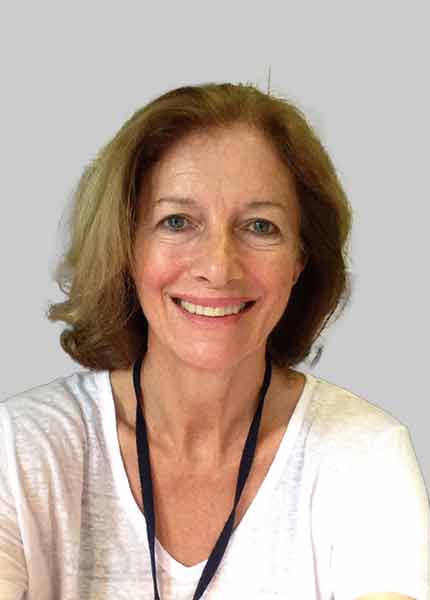
Hellenic Pasteur Institute
Athens | Greece
Studied Biology and received her PhD in Medicine from the University of London, UK. She trained as post-doc at the Universities of London (Imperial College) and Cambridge (Laboratory of Molecular Biology), UK and in the Laboratory of Molecular Genetics at the Hellenic Pasteur Institute (HPI) in Athens, Greece. Since 2000 she has been head of the Laboratory of Molecular Genetics at the HPI.
Her main research interest is the interface between the immune system and the central nervous system (CNS), particularly the participation of the immune system in physiological brain processes such as host defense, and in inflammatory diseases such as multiple sclerosis (MS). The laboratory has a long-standing interest in understanding the functions of a pro-inflammatory cytokine, tumor necrosis factor (TNF), in the CNS. TNF drives inflammatory responses to infection, injury and neurodegeneration, but paradoxically also protects neurons, directly and indirectly by repairing the myelin sheath around demyelinated axons. This diversity of TNF function is now understood to be a direct reflection of its complex biology. “TNF” represents at least a two-ligand (soluble TNF and membrane TNF), two-receptor (TNF receptors 1 and 2/TNFR1 and TNFR2) system with ligands and receptors both differentially expressed and regulated on different cell types. Through the application of sophisticated spatial and temporal gene-targeting techniques in mice, it is possible to dissect the individual functions of the two TNFs and their receptors in a number of important brain processes through the study of experimental disease models. In general soluble TNF/TNFR1 interactions dominate inflammatory responses, which often leading to significant secondary tissue damage and also strongly inhibit remyelination. In contrast, membrane TNF/TNFR2 interactions promote remyelination and neuroprotection, by enhancing oligodendrocyte precursor cells.
The ability to separate deleterious and beneficial effects of TNF at a molecular level has direct implications for therapy in human disease. Non-selective TNF inhibitors that block the effects of both soluble and membrane TNF and are blockbuster drugs for peripheral inflammatory diseases such as rheumatoid arthritis, behave badly in the CNS. They exacerbate MS and can even induce de novo demyelinating disease. The experimental data now clearly suggest that selective inhibition of soluble TNF and/or TNFR1, while preserving membrane TNF and/or TNFR2, is a promising future direction for safe immunotherapy in chronic inflammatory diseases of the CNS like MS.
Lesley has 81 original research publications and reviews in international journals and serves as an ad hoc reviewer for numerous international journals and funding bodies. She is a member of the Board of the European School of Neuroimmunology (ESNI), Vice-President of the Hellenic Academy of Neuroimmunology (HELANI), and Secretary/Treasurer of the International Society of Neuroimmunology.
C.F. 97644730588 | Managed by EEM Services
C.F. 97644730588
EEM no longer holds any secretarial or operational role for ISNI. Any temporary technical continuity is purely custodial, pending ISNI’s instructions.